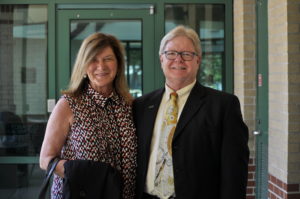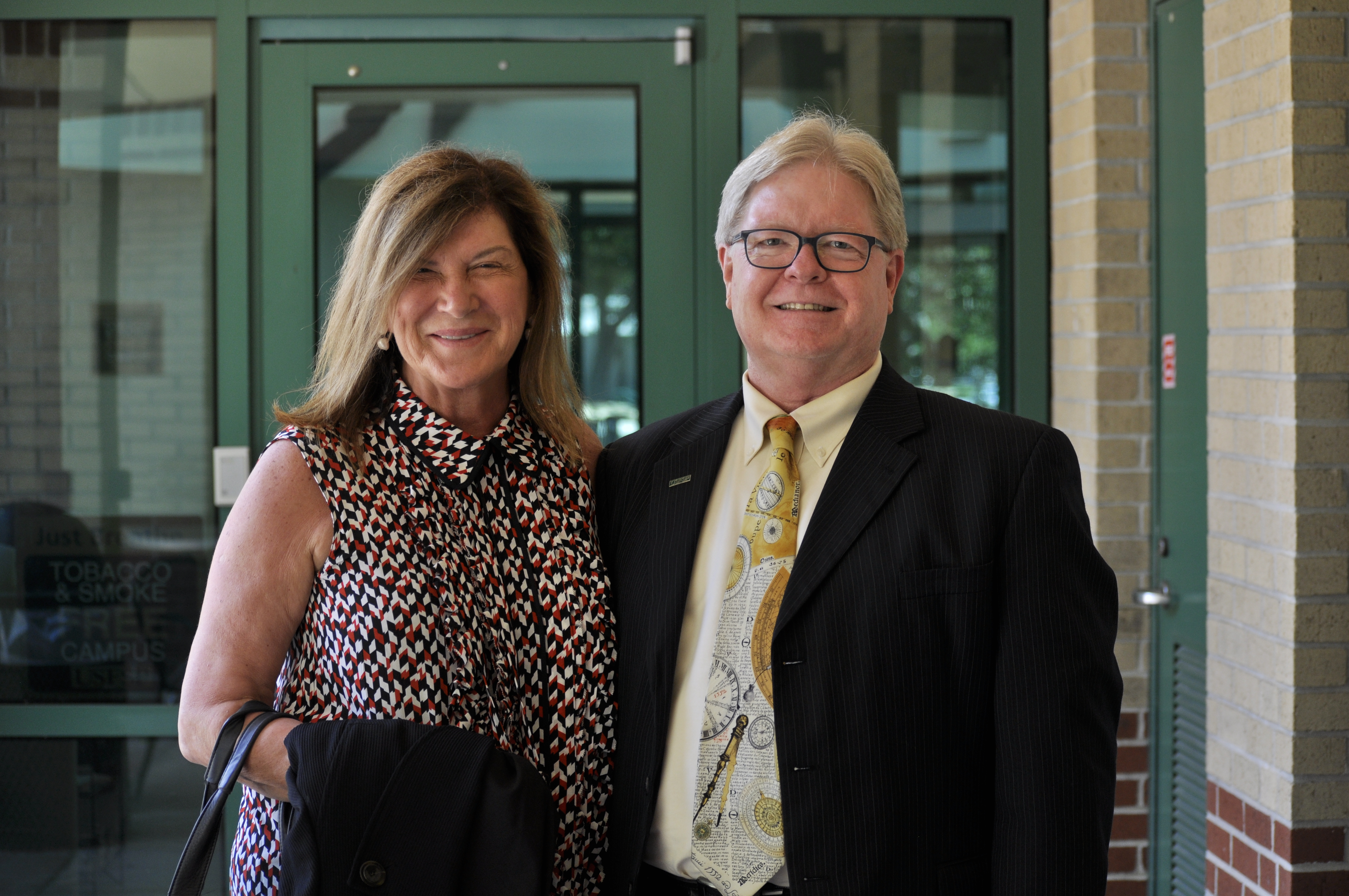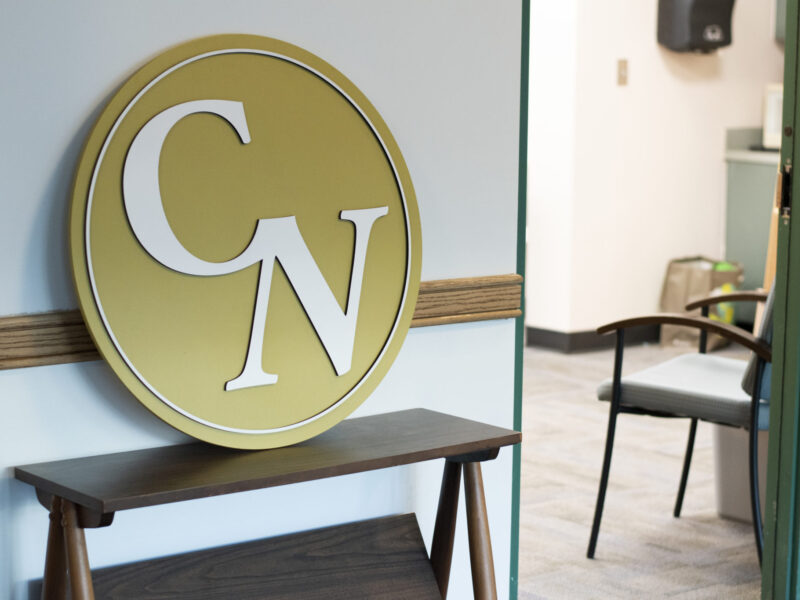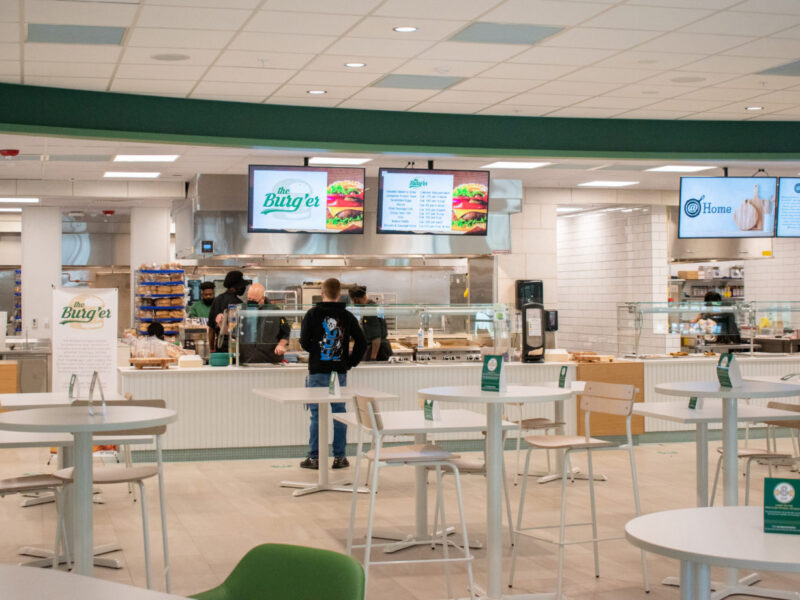Sophia Wisniewska, the university’s regional chancellor since July 2013, has been dismissed in a move that was as abrupt as it was mysterious.
Her temporary replacement will be Martin Tadlock, who came to the university 14 months ago as regional vice chancellor for academic affairs.
When news of Wisniewska’s ouster broke Friday night, the USF system’s public information office in Tampa confirmed it in a brief statement that offered no explanation.
“We can confirm Sophia Wisniewska is no longer in her position as regional chancellor of USF St. Petersburg,” the statement said. “Martin Tadlock has been named interim regional chancellor. We will be providing an update to our community in the near future, and we will share that information with you as soon as it is available. We will not be communicating further at this time.”
In an email to USFSP faculty and staff on Saturday afternoon, USF system President Judy Genshaft offered no reasons for what she called “a transition in leadership at USF St. Petersburg.”
She praised Tadlock’s leadership skills and announced that William T. “Bill” Hogarth, who served as interim regional chancellor before Wisniewska arrived, will return to assist Tadlock.
Hogarth, director of the Florida Institute of Oceanography, is a former interim dean of the College of Marine Science. “He is highly regarded and knows our community well,” Genshaft said.

On Sept. 12, Wisniewska sounded like a confident boss when she issued a lengthy statement updating the USF St. Petersburg community on the impact of Hurricane Irma and praising the staff members who “coordinated to ensure the safety of our students, faculty and staff.”
Three days later, she sent a text message to the Tampa Bay Times confirming that she was departing.
“One of the great joys of my career has been my years as regional chancellor at USFSP,” she wrote. “In the life of any institution, there are natural times for leadership change. This is one of them.”
Tadlock, her interim replacement, told The Crow’s Nest that Wisniewska’s dismissal came as a surprise.
“I was asked Thursday morning if I was willing to serve as interim chancellor and to keep that confidential,” he said. “After a long pause as I processed this, I then said ‘yes.’ That’s the only answer to that question, to be willing to serve the university.
“By noon, I was informed I would be serving as interim chancellor.”
Tadlock also said he had been “asked not to comment on reasons for the chancellor’s departure” pending an official release from the USF system in Tampa.
On Monday, he said, he will continue meeting with individuals and groups while wearing his two hats as interim regional chancellor and the campus’ top academic official.
Then on Wednesday, he and other campus leaders will host a campus forum to answer questions about plans for moving forward.
“I am calm about these things and understand the disruption that occurs,” he said. “I know what this entails. I have done it before. I was interim president at Northeastern State University in Oklahoma for six months.”
Tadlock came to the university in the summer of 2016 from Bemidji State University and Northwest Technical College in northern Minnesota, where he was provost and vice president for academic and student affairs.
He grew up on a small farm in Rockingham, North Carolina, spent four years in the Air Force and then enrolled in Utah State University on the GI Bill. He earned a bachelor’s degree in geography and a master’s in secondary education there, then a doctorate in educational administration and leadership at Miami University of Ohio.
He taught middle school while earning his advanced degrees and eventually became a professor of middle school education.
Before his stint at Bemidji State University, Tadlock held administrative posts at Northeastern State University in Oklahoma, the University of Wisconsin Oshkosh, and California State University Monterey Bay.
In an interview with The Crow’s Nest last year, Tadlock said he got into higher education administration because “I love seeing people grow, and I love to see people learn.”
“I really believe that public education has a responsibility to serve the people and the community,” he said. “We have an ethical obligation to provide opportunities for people to grow, develop and change their lives. As a public institution, we are the university for the people.”
In his first year at USFSP, Tadlock oversaw the creation of a master academic plan that is designed to reset the direction of the university for the next five years and double the number of academic majors.
As interim regional chancellor, Tadlock assumes a role that has sometimes resembled a revolving door in recent years.
Between 1992 and 2002, a much smaller St. Petersburg campus was run by Bill Heller, whose title was dean and executive officer. But he was ousted by Genshaft, to the dismay of many on campus and in the community.
Heller was replaced temporarily by Ralph Wilcox, and then Karen White served as vice president and CEO of the campus (and later, with the title of regional chancellor) from 2003 to December 2008.
Margaret Sullivan followed White until her resignation in the summer of 2012, and Hogarth was interim chancellor until Wisniewska arrived in July 2013.
When she was hired in March 2013, Genshaft hailed Wisniewska as a leader with “the experience and vision to continue the tremendous progress we have witnessed at USF St. Petersburg.”
Wisniewska’s “commitment to scholarship, teaching and community engagement will enrich both USF and the broader community,” Genshaft said. “She will inspire all who meet her.”
In fact, Wisniewska does have a remarkable personal story.
She was born in a small Polish town, spent her teen years in Philadelphia and became the first member of her family to graduate from college. A scholar of Russian language and literature, she came to USFSP from Penn State Brandywine, where she was chancellor for eight years.
In Wisniewska’s four years as regional chancellor, USF St. Petersburg made progress on several fronts. It also suffered an embarrassment when Han Reichgelt – Tadlock’s predecessor as vice chancellor for academic affairs – was ousted after he propositioned a female professor and made sexually offensive remarks.
The university adopted a 10-year master plan that calls for its current enrollment of 4,700 to grow to 10,000 by 2025.
It bought property from the Poynter Institute, landed one private donation of $10 million and another of $5 million, opened a new building for the College of Business, and made plans for a third residence hall, which is tentatively scheduled to open in 2019.
“Working together with the Board of Trustees, faculty, staff and students, we made extraordinary progress,” Wisniewska told the Times.
In the community, meanwhile, Wisniewska arranged new partnerships between the university and Johns Hopkins All Children’s Hospital, the Tampa Bay Rowdies, and Valpak.
She serves on the boards of the St. Petersburg Chamber of Commerce, the St. Petersburg Downtown Partnership and Dali Museum, and she is president of the city’s so-called “Innovation District” – a collaborative partnership of the university and neighboring hospitals and marine research outfits.
In recent months, however, Wisniewska has taken heat from the USF system’s Board of Trustees over the St. Petersburg campus’ graduation rate.
While the Tampa campus reports that 70 percent of its students graduate in six years, USFSP has a six-year graduation rate of 38 percent.
The USF system has an overall enrollment of nearly 50,000 students, most of it on the giant Tampa campus. The St. Petersburg campus has an enrollment of 4,700 and the Sarasota-Manatee campus, 2,100.
Although the St. Petersburg and Sarasota-Manatee campuses are both accredited by the Southern Association of Colleges and Schools Commission on Colleges – a significant achievement in academic governance – both still fall under Genshaft, as system president, and the system’s 13-member Board of Trustees.
Earlier this year, the regional chancellor of the Sarasota-Manatee campus resigned amid criticism that her campus was falling short on its fundraising goals.
Several St. Petersburg faculty members campus said that Wisniewska’s dismissal caught them by surprise.
“I am always grateful for the administrators who make the tough calls on budgets, programs and staffing so that I can focus on the things I do best … which is to teach and publish to the best of my abilities,” said Deby Lee Cassill, an associate professor in the Department of Biological Sciences.
She thanked Wisniewska “for her service to our students and our faculty. She created a community-based, strategic plan of growth. I hope it continues under our interim and new leadership. I will miss her smiling presence on our campus.”
Information from USF St. Petersburg web sites, the Tampa Bay Times and USF Public Media was used in this report.
Excerpts from statement of USF system President Judy Genshaft
During this difficult period (caused by Hurricane Irma), a transition in leadership at USF St. Petersburg has occurred, and I wanted to inform the university community. I am pleased to announce that Dr. Martin Tadlock, regional vice chancellor of academic affairs at USF St. Petersburg, will serve as interim regional chancellor.
Dr. Tadlock is an excellent choice to lead the institution. Since joining USF St. Petersburg, he has demonstrated strong leadership skills and he is committed to advancing the teaching, research and service missions of the institution.
Dr. Tadlock is dedicated to student success, he understands the USF system, and he values the St. Petersburg community. During his tenure as regional vice chancellor, he has been able to enhance student success initiatives and international partnerships.
(The USFSP) leadership team shares our absolute commitment to the success of our students, faculty and staff. I am confident that he will not lose any momentum in moving USF St. Petersburg forward. Thank you for your hard work and dedication.
Excerpts from statement of Interim Regional Chancellor Martin Tadlock
I appreciate President Genshaft’s confidence in me, and share that confidence in the USFSP leadership team, and in each of you. We are a close-knit community. As always, and particularly during transitions like this, we must continue to focus on our students and their success. This is our mission – our reason for being here.
On Wednesday (Sept. 20), the USFSP cabinet and I will host a campus forum. Please watch for an invitation. We will be happy to answer your questions about our plan for moving forward. Additionally, I will be meeting with many individual groups on campus over the next couple of weeks.
On a personal note, I am pleased to be part of the USFSP community and am impressed by the work we do here. We are privileged to work with a dedicated Campus Board and outstanding members of the St. Petersburg community, both local and regional organizations.
I entered education 36 years ago because of my commitment to students, and that commitment has never changed. Our students’ success is our shared priority.
Editor’s note: Days after this story was published, the real reason for Wisniewska’s ousting emerged. You can find that story here.



